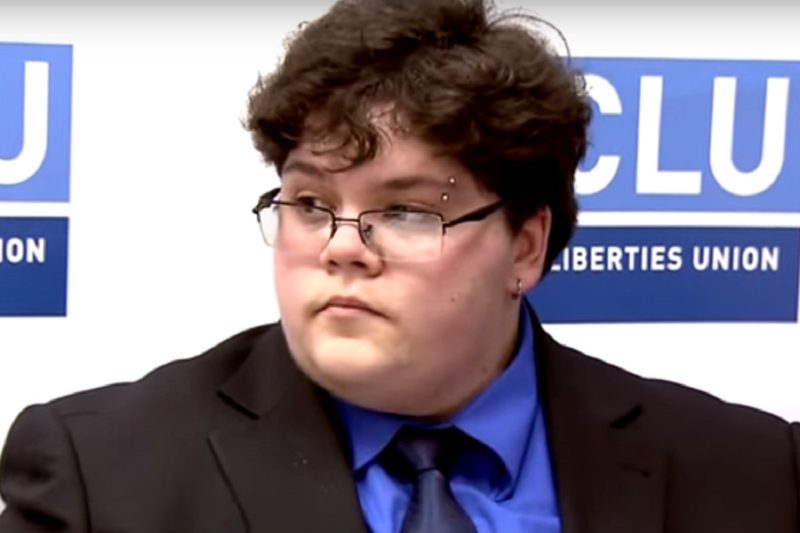Federal Court Issues Preliminary Injunction Allowing Trans Student to Use Boys’ Bathroom
Gavin Grimm sued the Gloucester County School Board over its policy requiring students to use restrooms that reflect their “biological gender” rather than their gender identity.

A federal district court in Virginia issued an injunction on Thursday in favor of transgender student Gavin Grimm, requiring that Gloucester County School Board permit him to use the boys’ restroom at his high school.
Grimm sued the Gloucester County School Board over its policy requiring students to use restrooms that reflect their “biological gender” rather than their gender identity. The student’s attorneys argued that the policy—which essentially expels transgender students from communal restrooms and requires them to use “alternative” restroom facilities—is unconstitutional under the 14th Amendment and violates Title IX of the U.S. Education Amendments of 1972, a federal law prohibiting sex-based discrimination at schools that receive federal funding.
Grimm’s attorneys had asked the district court for an injunction blocking the policy. The court initially sided with the school board, ruling that its bathroom policy did not violate Title IX, and that the privacy interests of other students outweighed any potential harm to Grimm in using a different bathroom.
After Grimm appealed that ruling to the Fourth Circuit Court of Appeals, a three judge-panel reversed the district court’s dismissal of Grimm’s claim in late April, ruling that the district court had relied on the wrong standard in failing to issue the injunction. In backing Grimm, the court relied heavily on recent guidance issued by the U.S. Department of Education that denying transgender students access to the school bathrooms of their choice is a violation of Title IX, and remanded the case back to the lower court for a new hearing with instructions to include consideration of the Department of Education’s guidance. After entertaining a request by the school board that all 15 judges who sit in the Fourth Circuit rehear the case “en banc,” meaning before the full court, the Fourth Circuit announced that it would not review its prior ruling.
In Thursday’s order granting the injunction, the Virginia district court noted that “[i]t appears to the Court from the unrebutted declaration submitted by the parties that the plaintiff is entitled to use the boys’ restroom.”
“Therefore, for the reasons set forth in [Judge Davis’s] concurrence and based on the declarations submitted by the parties, the Court finds that the plaintiff is entitled to a preliminary injunction,” wrote District Court Judge Robert G. Doumar in the order.
Earlier this month, the school board requested that the U.S. Supreme Court review the case. The petition filed with the Court asks the justices to reexamine a line of legal precedent relied on by the Fourth Circuit in ruling for Grimm. This precedent, a principle of judicial deference sometimes referred to as the Auer/Seminole Rock doctrine, grants federal agencies like the Department of Education substantial leeway in interpreting the regulations for laws they are responsible for enforcing, like Title IX. But given the Court’s current calendar, the earliest it could hear the case, should it agree to take it, is next year.
In late May, the Supreme Court declined to to hear another case involving student loan financing that similarly sought to undermine the longstanding principle of judicial deference.
In an email to Rewire, Joshua Block, staff attorney for the American Civil Liberties Union, which represents Grimm in this lawsuit said, “This ruling will have the biggest impact for Gavin personally.”
“Under the Fourth Circuit’s decision, it was already clear that Gavin would ultimately prevail in court. This preliminary injunction makes sure that Gavin’s legal victory has a real impact on his life while he is still at school.”
